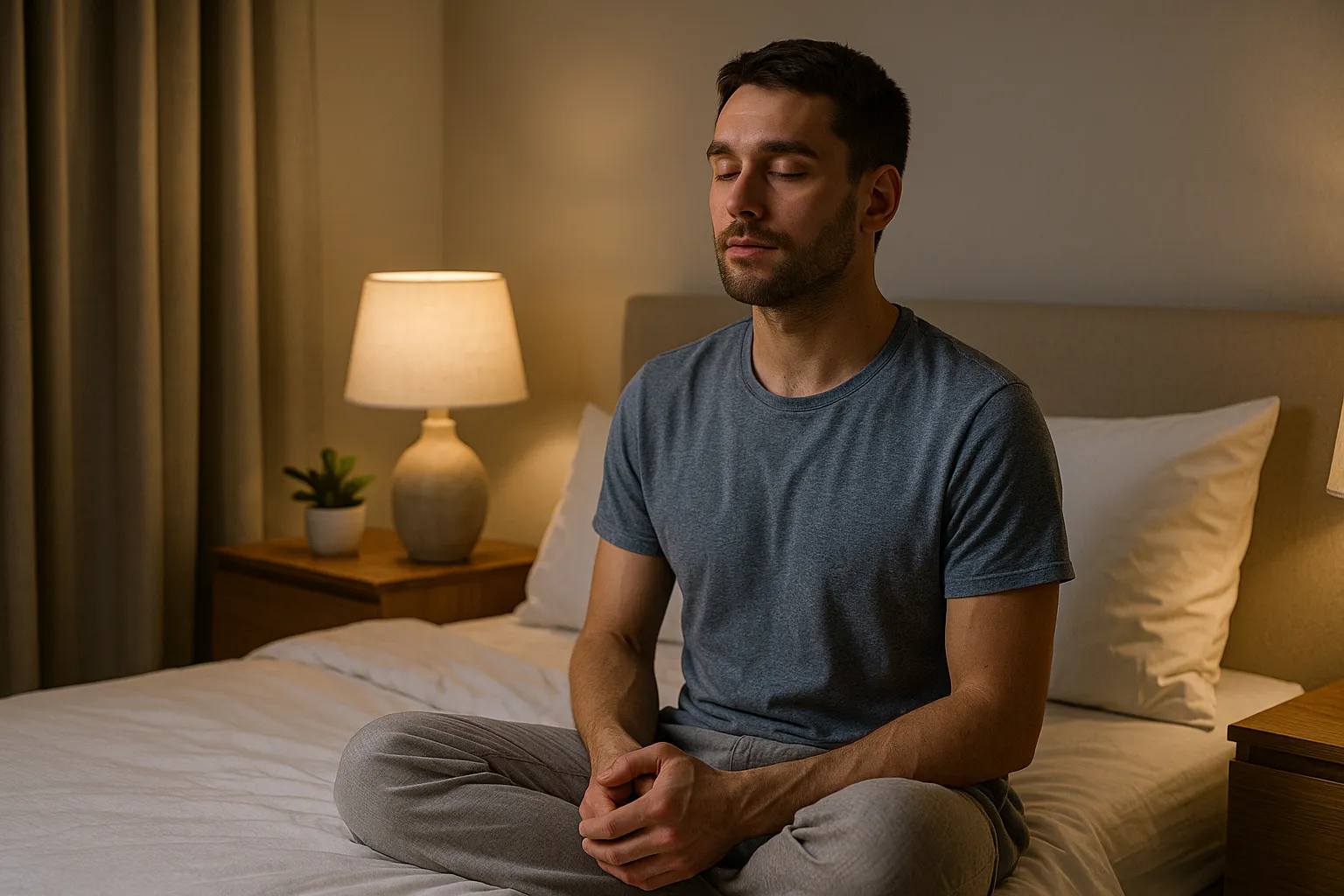Sleep and mental health are deeply connected. Poor sleep can increase stress, worsen anxiety, and reduce focus, while good-quality sleep restores balance, boosts mood, and strengthens resilience. Unfortunately, modern lifestyles often disrupt natural sleep cycles. The good news is that by developing a few simple daily habits, you can improve both your sleep quality and overall mental well-being.
1. Create a Consistent Sleep Schedule
The human body thrives on routine. Going to bed and waking up at the same time every day helps regulate your internal clock, also known as the circadian rhythm. When sleep patterns are irregular, it becomes harder for the body to know when it’s time to rest, often leading to insomnia or restless nights.
Tips:
- Aim for 7–9 hours of sleep each night.
- Stick to the same schedule, even on weekends.
- Try winding down 30 minutes before bed with calming activities.
Consistency trains your body to recognize when it’s time to sleep, making rest deeper and more restorative.
2. Limit Screen Time Before Bed
One of the biggest disruptors of sleep is exposure to blue light from phones, tablets, and laptops. Blue light suppresses melatonin, the hormone responsible for making you feel sleepy. Scrolling through social media or watching TV right before bed stimulates the brain, making it harder to relax.
How to break the habit:
- Turn off screens at least an hour before bed.
- Replace evening screen time with reading, journaling, or meditation.
- If screens are unavoidable, use blue-light filters or night mode.
Reducing screen time at night not only improves sleep but also reduces overstimulation, which benefits mental well-being.
3. Exercise Regularly
Physical activity plays a powerful role in sleep and mental health. Exercise reduces stress hormones, improves mood by releasing endorphins, and promotes deeper sleep. It also helps regulate the body’s natural rhythms, making it easier to fall asleep at night.
Best practices:
- Aim for at least 30 minutes of moderate activity most days.
- Choose activities you enjoy, such as walking, cycling, or yoga.
- Avoid intense exercise right before bed, as it may interfere with sleep.
Even light exercise can have positive effects on both rest and emotional balance.
4. Practice Relaxation Techniques
Stress and anxiety are common causes of sleep problems. Practicing relaxation techniques during the day or before bedtime can calm the mind and prepare the body for rest. Methods such as deep breathing, progressive muscle relaxation, or meditation reduce racing thoughts and lower tension.
Relaxation habits to try:
- Deep breathing exercises for 5–10 minutes before bed.
- Gentle evening stretches or yoga poses.
- Guided meditation or calming music.
Integrating these practices into your routine not only supports better sleep but also enhances overall mental clarity and resilience.
5. Pay Attention to Nutrition and Evening Routine
What you eat and drink significantly affects your sleep. Heavy meals, caffeine, and alcohol too close to bedtime can interfere with rest. Creating a mindful evening routine helps signal to your body that it’s time to unwind.
Tips for better sleep hygiene:
- Avoid caffeine in the afternoon and evening.
- Limit alcohol, as it disrupts deep sleep cycles.
- Eat a light, balanced dinner and avoid late-night snacks.
- Build a calming bedtime routine, such as drinking herbal tea or reading.
These small adjustments make it easier to fall asleep and wake up feeling refreshed.
Connecting Sleep and Mental Well-Being
Good sleep is not just about physical rest — it directly influences mental health. A lack of quality sleep can increase irritability, reduce focus, and heighten emotional sensitivity. On the other hand, restful nights improve mood stability, problem-solving abilities, and overall resilience. By making daily habits intentional, you can create a positive cycle: better sleep supports better mental health, and improved mental well-being makes sleep more restful.
Final Thoughts
Improving sleep quality doesn’t always require big changes. Simple daily habits — maintaining a consistent sleep schedule, limiting screens, exercising regularly, practicing relaxation, and paying attention to nutrition — can transform both your nights and your mental health. Start small, experiment with these habits, and notice how your body and mind respond. Over time, these practices can help you achieve not just better sleep but also a more balanced and peaceful state of well-being.



